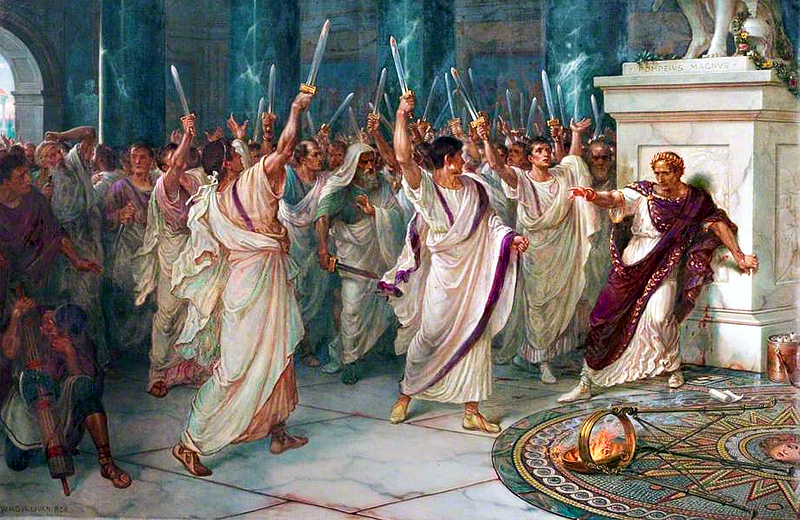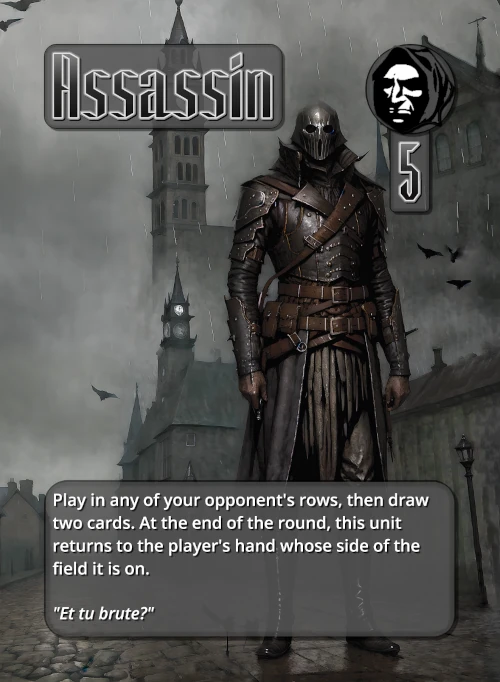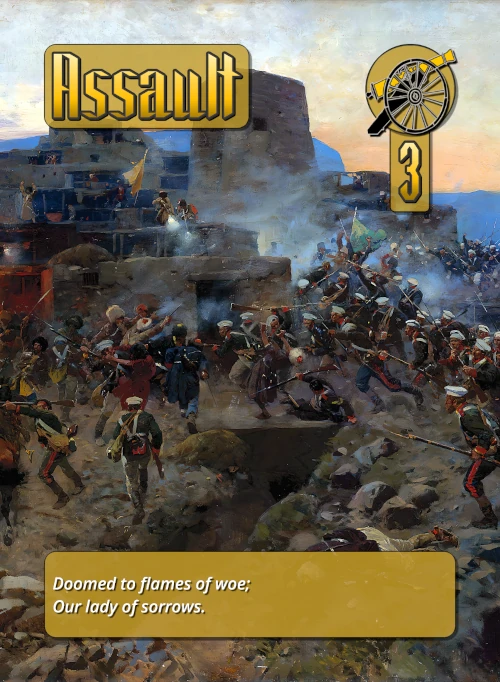Strength: 5
Type: Spy Power
Effect Text: Play in any of your opponent's rows, then draw two cards. At the end of the round, this unit returns to the player's hand whose side of the field it is on.
Flavor Text: "Et tu brute?"
Flavor Source: William Shakespeare, Julius Caesar
Strategy:
Spies are a powerful way to stall and obtain card draw, effectively giving you more turns than your opponent; however, your opponent will pick up the spy at the end of the round to use against you. To minimize your opponent’s opportunity for card draw, try to use other power cards to pick up the spy directly from the playing field, send the spy to the graveyard, swap the spy back to your side of the field (so it returns to your hand at the end of the round), or play your spy in the final round of the game. Unlike most spies, the Assassin card doesn’t come with the risk of creating adjacency for your opponent.
About the card:
After defying the senate and crossing into Italy with the full force of his army (see also Fate), Julius Caesar would change Rome forever. Defeating the opposition armies and proclaiming himself Emperor in a protracted civil war, Caesar would find himself with unlimited power and would use it to make social reforms making him extremely popular with the general public.

Just one year later, Caesar would be dead on the Senate floor having been stabbed 23 times. The most famous of his assassins was Marcus Brutus who was initially on the side of Pompey during the civil war. After Pompey's defeat at Pharsalus in which 30,000 of his men were killed, Brutus switched sides to follow Caesar and led many other prominent Romans to do the same. For this reason Brutus has been seen as both betrayer, for orchestrating the assassination of his friend and savior, and enlightened republican, for killing the tyrant and destroyer of democracy. In Dante's Inferno Brutus was said to be in the mouth of Satan along with Judas, the disciple who sold Jesus to his enemies before his crucifixion, and Cassius, another conspirator against Caesar (see also Styx). Rome itself would never again return to republicanism as Brutus and Cassius were defeated in the ensuing civil war after the death of Caesar (see also Sack).






